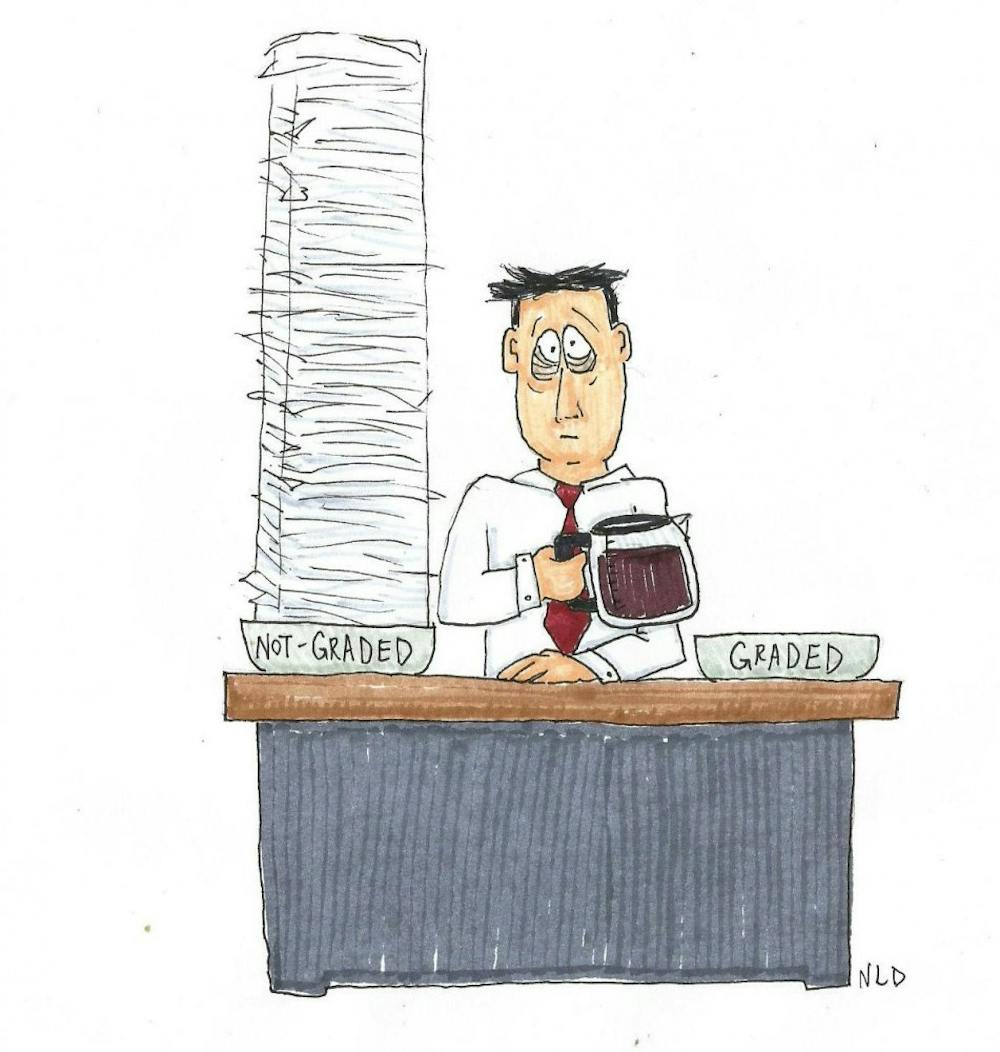We are blessed to live on such a beautiful campus. With our eyes shielded from the rain, sometimes it’s hard to see the amazing green space and updated infrastructure around us. But it’s there — and it’s great — but it’s not what makes UP so special.
The University of Portland is more than an aesthetically-pleasing library or a state-of-the-art recreation and wellness center. The University of Portland is more than new lights or refurbished dorm rooms. The University of Portland is not the physical and structural space perched majestically on The Bluff.
The University of Portland is the people: the living, breathing human beings that populate this beautiful campus.
But some of our community members are feeling forgotten — overshadowed by construction and under-served by administration. And we, as members of the UP community, stand in support of the faculty who feel overwhelmed and under-appreciated.
Last week, the Faculty Welfare Committee released a Faculty Welfare Survey Report. After surveying 339 instructional faculty at UP (with a 45 percent response rate), the committee consolidated the survey responses and listed eight major areas of improvement: Salary, work-life balance, enrollment/class sizes, transparency in decision making, adjunct/lecturer issues, faculty hiring, support services and facilities.
The report described many concerns faculty identified — one of which was the belief that increased workloads and stagnating pay seemed incongruent with higher rates of tuition increases and more resources provided for increased campus construction.
It seems like the University is prioritizing the modernization of buildings (things) over the needs of their employees (human beings). That may not be the administration’s intentions, and in some cases the allocation of donation may be out of their control. But clearly there are miscommunications and misunderstandings because the administration’s care and concern for their employees is not being adequately conveyed. And that’s problematic for many reasons.
One survey respondent said: “Everyone is disconnected from each other. Strangers are making all the decisions. (It) feels like we lost our culture of kindness, caring and personal teaching.”
Another respondent stated: “If people feel they have no input and cannot understand or change the way things happen in a community they helped build, they will leave.”
And that’s where we — the students — come in.
Professors are important to us.
If you haven’t considered it before, consider this now: Where would you be without your professors — without your favorite professor?
Professors can be unbelievably formative in a college student’s development — not only academically, but personally, emotionally and even spiritually.
Professors can make or break a student’s college experience. A bad professor can turn a student off to an entire field of study, and a good professor can cultivate a love of learning that continues even after graduation.
We want good professors — our education depends on it.
But to have good professors, we need a positive work environment that attracts and retains good professors. And even the best professor can turn bad, when given an impossibly heavy workload, long hours, high stress and low pay.
So we need to take care of our professors — because they’re all good and have the potential to be even better — and they’ve taken care of us.
According to the report, many faculty members “commented on their love of teaching and their fondness for students…” and “being inspired by students and young people.”
One respondent said: “I love this place, which is why I think some people get so upset sometimes. We genuinely care about this community and the students we serve and (we) want to defend it.”
As UP students, we should want to serve and defend our community too — and that includes our professors.
As UP students, we stand with our professors: demanding better pay, support and recognition for the hard-working faculty that make this institution run. And it all starts with better communication. The Beacon lives on good communication — productive interviews and informative articles require it. The University of Portland can thrive on good communication too.
The University of Portland is a living organism, made up of many living parts. The moment we begin to ignore one part, we jeopardize the well-being of the whole. The UP faculty are an integral part of the UP community — we won’t let them be ignored.









